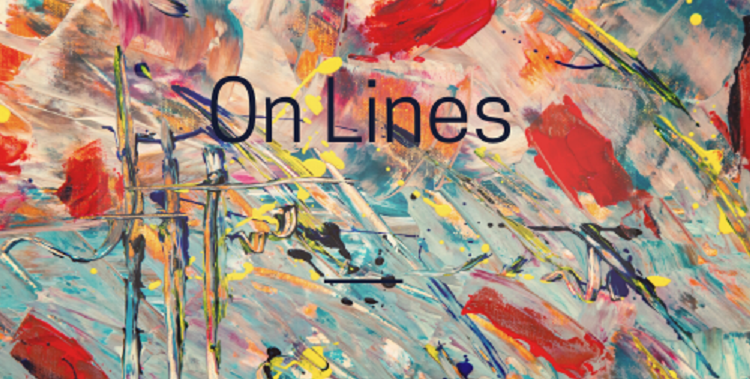Albus McInerney edits a literary magazine.
‘It isn’t Gluck,’ Patrice pointed out. ‘It’s somewhere between Glick and Glook.’
‘I had wondered,’ I said – untruthfully. For twenty years I’ve been referring to this year’s Nobel Prize winner as though her name rhymed with luck.
‘That’s what the umlaut is for,’ Rami said.
‘Of course,’ I replied, perhaps a little peevishly, ‘I see that.’
‘We should have something about her in the next issue,’ Rami continued.
‘Certainly!’ This swift agreement no doubt matched a desire to mask my ungracious response to being corrected in the matter of pronunciation.
‘Really?’ Dimitri asked.
‘You don’t think that’s a good idea?’ I had assumed everybody would approve.
‘It would be a good idea if we were the only poetry magazine on the planet,’ Dimitri said, ‘but by the time our next issue appears, Ms Glück and her opus will have been well covered – which means taking attention away from other voices.’ Dimitri, naturally, pronounced Glück with the deft and absolutely inimitable panache of Mitteleuropa.
‘No, Dimitri,’ Kim said, with some feeling. ‘This is important for everyone: Glück’s celebrity will help other poets.’
There was a pause, as the rest of us waited to see if Dimitri would argue the case.
Then Kim continued, ‘And she’s worth discussing quite apart from new-found Nobel celebrity. Her work merits the attention it will get – including attention from our humble magazine.’
‘You are quite right,’ Dimitri said (more gracious when corrected than I had been). ‘And there’s another angle we might look at.’
‘What’s that?’ I asked.
‘The rehabilitation of the Prize,’ he said.
‘Rehabilitation?’
‘You haven’t forgotten what happened last year!’
‘I certainly haven’t,’ I said, ‘but what’s last year got to do with this year?’
‘The notion that art can have integrity when it is wilfully disengaged from manifest truth,’ Dimitri said. ‘It seemed to get some traction in 2019. This is the beginning of a response.’
‘Taking a nuanced view of atrocities isn’t the same as condoning them,’ Patrice said.
‘That’s not just disingenuous, it’s impudent,’ Dimitri replied, more than a little fiercely, ‘In my part of the world we are still living with the legacy of that sort of nonsense.’
‘I was referring to the argument,’ Patrice replied evenly, ‘not subscribing to it. Like you, I see the essential truthfulness in Glück’s work as an antidote to ethical myopia.’
‘She is accused of being bleak,’ Kim pointed out, ‘but I think that misses the point. Confronting reality doesn’t mean capitulating to it. There is a search for significance; there are glimpses of redemption.’
‘Whatever / returns from oblivion returns / to find a voice,’ Rami quoted.
‘That’s it!’ Kim said. ‘I am trying to remember the rest.’
‘I have it here,’ Rami said. ‘From the center of my life came / a great fountain, deep blue /
shadows on azure seawater.’
‘You might describe that as optimism not wished, but observed,’ Kim said
‘That’s an intelligent reflection of life,’ Dimitri said. ‘And, Patrice, I know you were referring to the argument, not subscribing to it.’
‘Well,’ I said, ‘We seem at least to be in the business of precise debate.’
‘One could take the view, then, that this year’s Prize is already having a positive effect,’ Kim remarked cheerfully, ‘It would be nice if that spread into other areas.’
‘You mean politics?’ Rami asked.
‘Well, our politics in particular,’ Kim said.
‘You could write about that,’ I said. ‘The Prize and the Presidency – two institutions mired in ethical uncertainty.’
‘I hadn’t made that comparison,’ Kim said, ‘but it’s a good one.’
‘The omens are positive,’ Dimitri said, ‘There’s a tipping point when a charlatan’s antics simply expose him for a charlatan – though there will always be those who prefer to carry on believing in myths even after they’ve been exposed as myths.’
‘Glück speaks in one of her poems about “the abstract tide of fortune”,’ Kim said, ‘and about how “good will come of simply trying”.’
‘I like that,’ Patrice said.
‘Perhaps the Nobel people are trying,’ Rami said.
‘To make amends?’ I asked.
‘Yes,’ Dimitri said, ‘and so they should.’
‘We’ll have our chance to do the same in November,’ Kim said.
And there was another pause.
